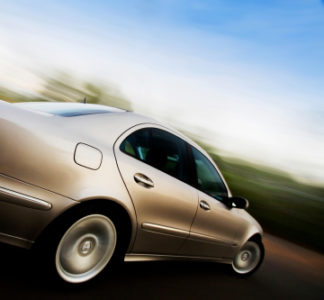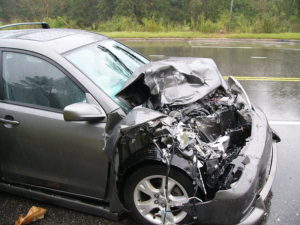Types of Auto Insurance Coverage
 Most people have a basic understanding of the different types of auto insurance. Things like state requirements, coverage limits and policy premiums are common knowledge. However, unless you are a trained professional, you may lack an in-depth understanding of how some obscure options work.
Most people have a basic understanding of the different types of auto insurance. Things like state requirements, coverage limits and policy premiums are common knowledge. However, unless you are a trained professional, you may lack an in-depth understanding of how some obscure options work.
You can become an educated consumer regarding the different types of auto insurance available. Researching and comparing auto insurance options can ensure that you have what you need. Additionally, familiarizing yourself with auto insurance options can ensure you are not paying for unnecessary coverage.
Enter your zip code above to compare auto insurance quotes from the top insurance companies in the nation!
Generally, there are six basic types of auto insurance coverage that you are either required to have, or can purchase as an option. This usually depends on the minimum requirements of your state and whether you are financing your vehicle. These include:
• Full Coverage
• Personal Injury Protection
• Uninsured or Underinsured Motorist Coverage
• Liability Coverage
• SR22
In addition to the minimum requirements, many insurance providers also offer optional auto insurance coverage. These include emergency road service and rental reimbursement.
Even if you are not familiar with all insurance coverage definitions, you can make knowledgeable decisions. With the help of online comparison sites, you can receive multiple insurance quotes by simply entering your zip code. This will give you a broader view of what is available and most affordable from various auto insurance providers. The following information provides an overview of different types of auto insurance coverage.
Full Coverage Auto Insurance Policy
Full coverage auto insurance is commonly known as Comprehensive and Collision in industry terms. Essentially, this type of policy protects your vehicle from physical damages. It also includes minimum state liability requirements for bodily injuries and property damages from an accident.
– Comprehensive Coverage
Applies to any type of loss that may occur from damages to your vehicle. Minus the deductible, the insurance policy pays for damages from severe weather, theft and vandalism. Comprehensive auto insurance policies also pay for damages if something falls onto your vehicle.
– Collision Coverage
Applies to damages to your vehicle from any type of traffic accident. This may include a collision with another vehicle, building or guardrail. Some collision policies also cover damages from driving over potholes. With collision coverage, your vehicle is either repaired or replaced following any of the mentioned incidents. If your vehicle is replaced, the insurance company reimburses you for the current value, not the original purchase price.
Typically, you are required to carry a comprehensive and collision auto insurance policy while you are financing your vehicle. You might want to keep this type of policy even if your vehicle is paid for, depending on where you live. If you car is less than 10 years old, high traffic or accident prone areas could leave you financially vulnerable after an accident.
Personal Injury Protection
Personal injury protection (PIP) covers medical payments for you, passengers and relatives that live with you and are authorized to drive your vehicle. The medical payments cover immediate and subsequent injuries from an accident. In most states, PIP covers medical expenses for you and your family when injured from an accident in someone else’s vehicle. Additional coverage may also include injuries you sustain as a pedestrian hit by a vehicle. PIP coverage applies regardless to who is at fault for the accident. Verify if this type of coverage is available in your state.
Free Car Insurance Comparison
Compare Quotes From Top Companies and Save
Secured with SHA-256 Encryption
Uninsured Motorist Auto Insurance Coverage
Just as the name implies, uninsured motorist auto insurance protects you in an accident with someone who does not have auto insurance. Some drivers choose to drive without carrying the minimum state requirements. Most states require uninsured motorist coverage for this reason. With this type of policy, you and your vehicle are covered for injury and property damage.
Underinsured Motorist Auto Insurance
Underinsured motorist auto insurance coverage protects you in an accident with a driver that has inadequate auto insurance. Drivers may carry the legal limits, but the amount is not enough to cover all of your physical and property losses in an accident. Underinsured motorist insurance covers the additional expenses.
This is often required in most states. You might want to include this with your policy, even if your state does not require underinsured motorist coverage.
Liability Auto Insurance
Most people are familiar with liability auto insurance, since this is required in all states to register a vehicle. Liability insurance covers the costs related to bodily injury and property damage that you are legally responsible for in an accident. This type of insurance does not cover the costs you might incur personally from injury or property damage. The exact coverage amount is based on state minimum requirements and individual preferences. Purchasing more than the minimum could increase your premium, but will give you added protection from an accident. The types of liability coverage include bodily injury and property damage .
Bodily injury liability insurance covers personal injury expenses such as:
• Hospital
• Doctor appointments
• Rehabilitation therapy
• Long-term care
• Lost wages
Property damage liability insurance covers property damages such as:
• Vehicles
• Street signs and lights
• Utility poles
• Buildings
SR22 Auto Insurance
SR22 is a state mandated auto insurance policy that drivers must purchase after a driver’s license revocation or suspension. Drivers must purchase this type of auto insurance before their license is reinstated.
Typically, a driver’s license is revoked or suspended after a serious traffic conviction such as a DUI (driving under the influence). Repeat offenses and causing an accident without auto insurance can lead to purchasing SR22. This serves as a guarantee that you will maintain an active auto insurance policy.
Optional Auto Insurance Coverage
Most auto insurance providers offer optional coverage for your personal protection. These additional insurance benefits may increase your premium. However each can save time, stress and money when needed.
Emergency Road Service
Emergency road service is usually available through your auto insurance provider or other sources. Services may include:
• Towing if your vehicle breaks down
• Tire changes
• Locksmith
• Battery jump
• Fuel delivery
You can get the best offers by evaluating the cost, which services are offered and the distance of coverage. Additionally, look at the service network. Most require using specific companies.
Rental Car Reimbursement
Rental car reimbursement is often included in a comprehensive and collision policy. Basically, you are covered for the expense of renting a car when your vehicle is damaged from an accident. Rental reimbursement usually has a per day/per accident limit. The coverage cost varies among auto insurance providers, but is generally inexpensive.
You can easily receive online auto insurance quotes for any type of policy. By providing basic information, you can determine the best, affordable options available. Enter you zip code to start comparing auto insurance rates today!

